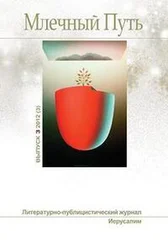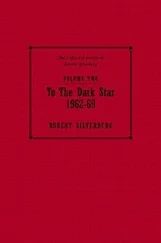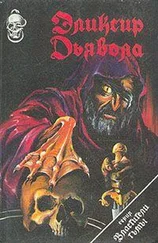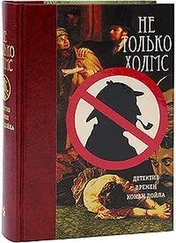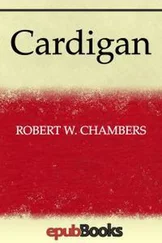* * * * *
Have I been fair to you? Did I keep my word? Surely you must now, in your heart, acquit me of treachery—of any premeditated violence toward you.
I never dreamed that those men would come to my stateroom. That plan had been discussed, but was abandoned because it appeared impossible to get hold of you.
And also—may I admit it without being misunderstood?—I absolutely refused to permit any attempt involving your death.
When the trap shut on you, there in my stateroom, it shut also on me. I was totally unprepared; I was averse to murder; and also I had given you my word of honour.
Judge, then, of my shame and desperation—my anger at being entrapped in a false position involving the loss in your eyes of my personal honour!
It was unbearable: and I did what I could to make it clear to you that I had not betrayed you. But my comrades do not yet know that I had any part in it; do not yet understand why the ship was not blown to splinters. They are satisfied that I made a mistake in the rendezvous. And, so far, no suspicion attaches to me; they believe the mechanism of the clock failed them. And perhaps it is well for me that they believe this.
It is, no doubt, a matter of indifference to you how the others and I reached safety. I have no delusions concerning any personal and kindly feeling on your part toward me. But one thing you can not—dare not—believe, and that is that I proved treacherous to you and false to my own ideas of honour.
And now let me say one more thing to you—let me say it out of a—friendship—for which you care nothing—could not care anything. And that is this: your task is accomplished. You could not possibly have succeeded. There is no chance for recovery of those papers. Your mission is definitely ended.
Now, I beg of you to return to America. Keep clear of entanglement in these events which are beginning to happen in such rapid succession in Europe. They do not concern you; you have nothing to do with them, no interest in them. Your entry into affairs which can not concern you would be insulting effrontery and foolish bravado.
I beg you to heed this warning. I know you to be personally courageous; I suppose that fear of consequences would not deter you from intrusion into any affair, however dangerous; but I dare hope that perhaps in your heart there may have been born a little spark of friendliness—a faint warmth of recognition for a woman who took some slight chance with death to prove to you that her word of honour is not lightly given or lightly broken.
So, if you please, our ways part here with this letter sent to you by hand.
I shall not forget the rash but generous boy I knew who called me
Scheherazade.
He sat there, holding the letter and looking absently over it at the little dog who had gone to sleep again. There was no sound in the room save the faint whisper of the tea–kettle. The sunny garden outside was very still, too; the blackbird appeared to doze on his peach twig; the kitten had settled down with eyes half closed and tail tucked under flank.
The young man sat there with his letter in his hand and eyes lost in retrospection for a while.
In his hand lay evidence that the gang which had followed him, and through which he no longer doubted that he had been robbed, was now in Paris.
And yet he could not give this information to the Princess Naïa. Here was a letter which he could not show. Something within him forbade it, some instinct which he did not trouble to analyse.
And this instinct sent the letter into his breast pocket as a light sound came to his ears; and the next instant Rue Carew entered the further drawing–room.
The little West Highland terrier looked up, wagged that section of him which did duty as a tail, and watched her as Neeland rose to seat her at the tea–table.
"Sandy," she said to the little dog, "if you care to say 'Down with the Sultan,' I shall bestow one lump of sugar upon you."
"Yap–yap!" said the little dog.
"Give it to him, please―" Rue handed the sugar to Neeland, who delivered it gravely.
"That's because I want Sandy to like you," she added.
Neeland regarded the little dog and addressed him politely:
"I shouldn't dare call you Sandy on such brief acquaintance," he said; "but may I salute you as Alexander? Thank you, Alexander."
He patted the dog, whose tail made a slight, sketchy motion of approval.
"Now," said Rue Carew, "you are friends, and we shall all be very happy together, I'm sure…. Princess Naïa said we were not to wait. Tell me how to fix your tea."
He explained. About to begin on a buttered croissant , he desisted abruptly and rose to receive the Princess, who entered with the light, springy step characteristic of her, gowned in one of those Parisian afternoon creations which never are seen outside that capital, and never will be.
"Far too charming to be real," commented Neeland. "You are a pretty fairy story, Princess Naïa, and your gown is a miracle tale which never was true."
He had not dared any such flippancy with Rue Carew, and the girl, who knew she was exquisitely gowned, felt an odd little pang in her heart as this young man's praise of the Princess Mistchenka fell so easily and gaily from his lips. He might have noticed her gown, as it had been chosen with many doubts, much hesitation, and anxious consideration, for him.
She flushed a little at the momentary trace of envy:
"You are too lovely for words," she said, rising. But the Princess gently forced her to resume her seat.
"If this young man has any discrimination," she said, "he won't hesitate with the golden apple, Ruhannah."
Rue laughed and flushed:
"He hasn't noticed my gown, and I wore it for him to notice," she said. "But he was too deeply interested in Sandy and in tea and croissants ―"
"I did notice it!" said Neeland. And, to that young man's surprise and annoyance, his face grew hot with embarrassment. What on earth possessed him to blush like a plow–boy! He suddenly felt like one, too, and turned sharply to the little dog, perplexed, irritated with himself and his behaviour.
Behind him the Princess was saying:
"The car is here. I shan't stop for tea, dear. In case anything happens, I am at the Embassy."
"The Russian Embassy," repeated Rue.
"Yes. I may be a little late. We are to dine here en famille at eight. You will entertain James―
"James!" she repeated, addressing him. "Do you think Ruhannah sufficiently interesting to entertain you while I am absent?"
But all his aplomb, his lack of self–consciousness, seemed to be gone; and Neeland made some reply which seemed to him both obvious and dull. And hated himself because he found himself so unaccountably abashed, realising that he was afraid of the opinions that this young girl might entertain concerning him.
"I'm going," said the Princess. " Au revoir , dear; good–bye, James―"
She looked at him keenly when he turned to face her, smiled, still considering him as though she had unexpectedly discovered a new feature in his expressive face.
Whatever it was she discovered seemed to make her smile a trifle more mechanical; she turned slowly to Rue Carew, hesitated, then, nodding a gay adieu, turned and left the room with Neeland at her elbow.
"I'll tuck you in," he began; but she said:
"Thanks; Marotte will do that." And left him at the door.
When the car had driven away down the rue Soleil d'Or, Neeland returned to the little drawing–room where Rue was indulging Sandy with small bits of sugar.
He took up cup and buttered croissant , and for a little while nothing was said, except to Sandy who, upon invitation, repeated his opinion of the Sultan and snapped in the offered emolument with unsatiated satisfaction.
Читать дальше

